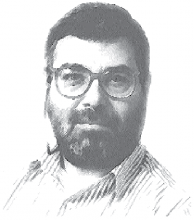You are here
Aleppo’s frightening reminder of wider threats and older glories
Feb 11,2016 - Last updated at Feb 11,2016
Aleppo today is frightening almost beyond description and comprehension.
One of the world’s ancient centres of civilisation is bombed and sieged, its inhabitants tortured and starved to death, and hundreds of thousands of fleeing refugees do not know if they will find shelter or live another week.
Even then, Aleppo is not the most frightening thing we have to understand these days in this realm of modern urban warfare. The most frightening thing is that Aleppo is only the tip of the Syria’s iceberg, which itself is only the latest example of daily savagery and urban wars across many parts of the Arab world.
It is ironic and painful that Syria, which is a home to the world’s oldest continuously inhabited city of Damascus (5,000 years and counting), should emerge today as the world’s centre of many simultaneous dimensions of depraved, barbaric human behaviour.
Such behaviour is centrally anchored in the Arab region, but it is also fed, fuelled, funded, armed and stoked by many major non-Arab powers in the region and around the world.
There are no innocents or bystanders among us.
It is very difficult even to find a starting point for a meaningful emotional response or analytical understanding of what is happening in Aleppo city and province: the fleeing refugees that could number 60,000 towards the north and another 150,000 to the south; the destroyed city monuments and flattened entire quarters that had survived thousands of years in some cases, until 2012; the fate of nationalist and Islamist rebels who are likely to be encircled soon by Syrian, Russian and other forces, and bombed or starved to death.
We do have many choices for starting points if we decide to begin trying to comprehend how we made the modern Arab transition from widespread nationalist and developmental state building to isolated but steadily increasing episodes of naked cruelty and barbarism.
Syria and other Arab lands, in just the past generation, practiced and endured savage urban warfare, aerial bombardments of civilian neighbourhoods, destruction of schools, hospitals, water supplies, and bakeries, serial atrocities by the government (mostly) but also to a lesser extent by rebels and terrorists, government “extermination” of rebel civilians (in the UN’s words), siege and starvation of entire cities, and other continuous war crimes and crimes against humanity.
This is especially hard to watch, given the riches of culture, art, religion, ethics, science and humanism that emerged from our Arab cities throughout history, and enriched the world.
Every time we see our urban collapse, mass human pain and vulnerability, tens of thousands of fleeing refugees or drowned, dead, desperate emigrants, we try to reconcile this contemporary failure with the many achievements of our past — but not only our past, because we also have many examples of continuing human creativity, entrepreneurship, dynamism, and productive development in numerous corners of the Arab world today.
Arab-Islamic achievements are not only part of our history, and our destroyed and emptied cities are not a reflection of either Arab or Islamic attributes.
There is only one factor that is constant among the rubble of major urban quarters in recent decades, in Falluja, Aleppo, Ramadi, Homs, Taiz, Aden, Mogadishu, Gaza City, Bint Jbeil, Tripoli, Sirte, Beirut and others: irresponsible and often criminal political leaders, among state officials and rebel forces alike.
Their behaviour is not an affirmation of our prevailing Arab-Islamic values, but rather their contradiction of those values.
The best in our culture usually is absent from incumbent state power because Arab citizens still do not have any meaningful way to participate in public life and policy formulation.
When citizens are sidelined, gangs take over the business of state and foreign powers line up with their favourite gangs; we sit back and on television watch our urban centres burn and our populations flee for safety, usually in exile, perpetually unprotected, deterritorialised and vulnerable.
Yet, we must remember our historical achievements and those few safe and dynamic quarters of the Arab world today, and keep in mind the forces that allowed them to happen.
Those forces usually comprise citizens whose basic needs are adequately and equitably met, some forms of participation and accountability between leaders and citizens, and rule of law systems that minimise criminal and exploitative behaviour by the state or the citizens.
Not being invaded or colonised by foreign powers also helps.
We will need to draw on our best qualities again one day, when post-war state reconstruction efforts take place — in Syria, in Libya, in Iraq, in Yemen, in Palestine, in Somalia and other pockets of the Arab region here and there.
When that happens, or as we seek to reach that point, we should probably not call on the US, the Europeans, Russia, Iran or other foreign powers to step in and save the day — because these foreign powers are deeply engaged in the military action that destroys our societies.
The latest victim of the current wars in our region is the concept of a foreign power that steps in and restores order in a savaged Arab world.
It really is very difficult to know where to start trying to understand how we reached this point of local, regional and global powers all together destroying our cities and sending millions of Arabs fleeing for shelter — hoping that the nearest border will be open to them, or that they might find a relief truck that would offer them a sandwich, a blanket, or just a small bottle of water, so that they have a reasonable chance of making it to the next day.













